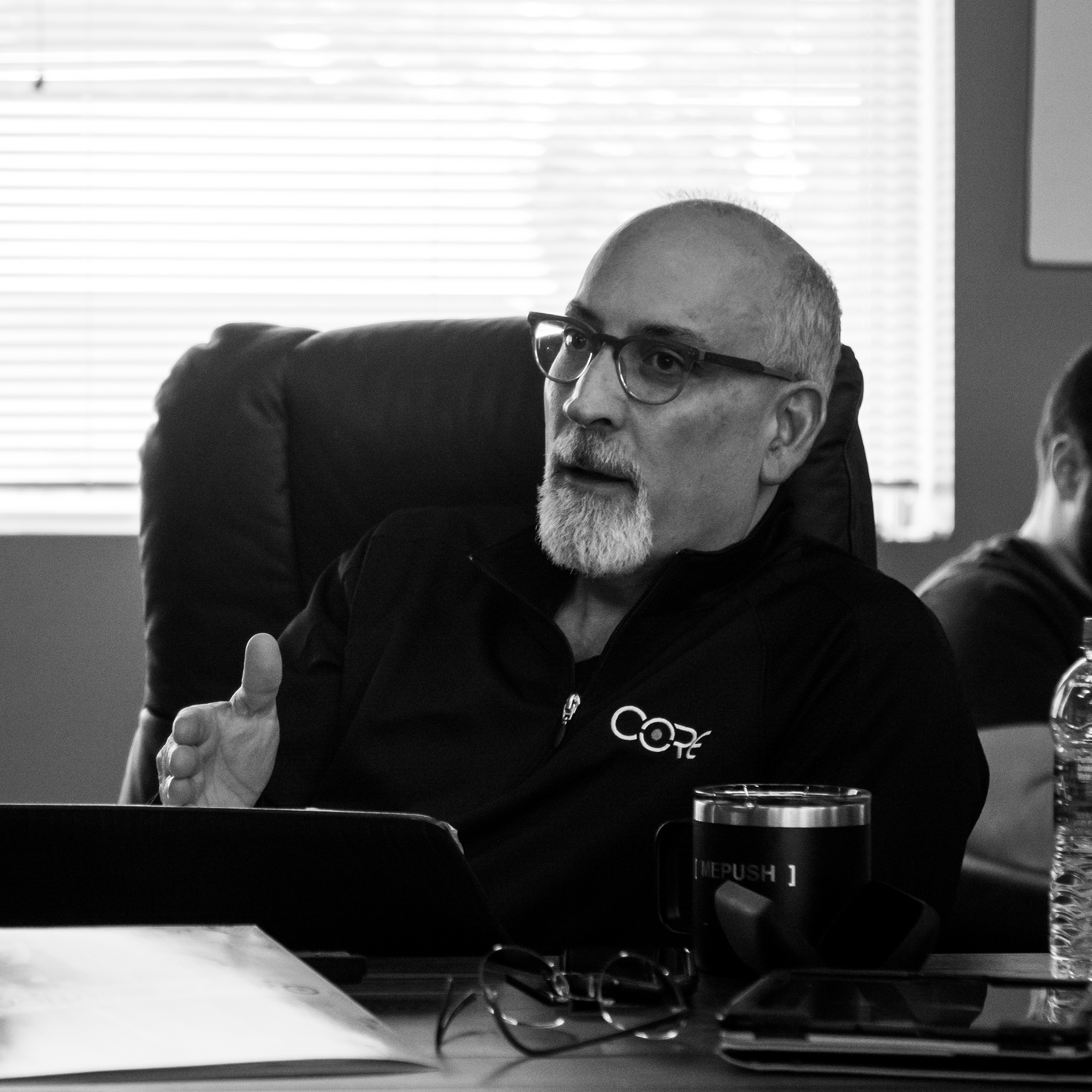ISO 9001 Certification Oklahoma City, OK

Local Consulting for the Oklahoma City Market
ISO 9001 Quality Management System. 100% Success Rate.
Implementation with Core. 4 Steps. 4 Months. Done.
The Business Landscape in Oklahoma City, OK
Oklahoma City (OKC) is one of the fastest-growing economic centers in the United States, offering a diverse business landscape that blends traditional industries with cutting-edge innovations. From its early days as an agricultural and energy hub to its current status as a center for aerospace, biotechnology, and advanced manufacturing, OKC continues to attract businesses, entrepreneurs, and investors.
As the city’s economy evolves, ISO 9001 certification has become an essential tool for businesses looking to enhance quality, improve efficiency, and compete in a global market. This article explores the history of business in Oklahoma City, its current economic climate, dominant industries, and the strategic advantages of ISO 9001 certification for local businesses.
A Look Back: The History of Business in Oklahoma City
Oklahoma City’s business history is deeply rooted in oil, agriculture, and transportation, but it has expanded over the years into a diversified and innovation-driven economy.
The Early Years: Agriculture & Railroads
Founded during the Oklahoma Land Run of 1889, Oklahoma City quickly became a center for agriculture and trade. The construction of railroads allowed local farmers and ranchers to ship goods across the country, boosting economic growth.
Get a Free Quote
The Oil Boom & Industrial Expansion (20th Century)
The discovery of oil in 1928 at the Oklahoma City Oil Field transformed the city into a major player in the energy sector. Large oil companies, such as Devon Energy, Chesapeake Energy, and Continental Resources, established headquarters in OKC, driving economic expansion for decades.
As the oil industry flourished, Oklahoma City also developed strong manufacturing and aerospace sectors, aided by military installations such as Tinker Air Force Base, which became a key economic driver.
Diversification & Economic Growth (Late 20th – 21st Century)
Recognizing the risks of relying solely on the oil and gas industry, Oklahoma City leaders focused on economic diversification. Investments in aerospace, healthcare, technology, and biosciences created new opportunities, transforming the city into a well-rounded economic powerhouse.
The launch of the MAPS (Metropolitan Area Projects) initiative in the 1990s further stimulated growth, revitalizing downtown Oklahoma City, attracting new businesses, and improving the city’s infrastructure.
Oklahoma City’s Business Climate Today
Today, Oklahoma City is recognized as a pro-business, high-growth environment. With a low cost of living, affordable commercial real estate, and a skilled workforce, the city attracts startups, major corporations, and small businesses alike.
Key Economic Indicators
Fast-growing population:
OKC’s metro area population exceeds 1.4 million, contributing to an expanding labor market.
Top-ranked business climate:
Oklahoma consistently ranks among the top states for business-friendly policies, thanks to low taxes, economic incentives, and minimal regulations.
High employment rates:
The city’s unemployment rate remains below the national average, with job growth driven by healthcare, aerospace, and advanced manufacturing.
What is the Cost of ISO 9001 Certification?
The cost of ISO 9001 certification with Core Business Solutions, Inc. varies depending on the size and complexity of the organization. However, we offer a transparent pricing structure that is based on the number of employees in the organization. It costs between $5,700 and $15,000 to prepare and between $3,000 and $5,000 to certify, depending on the company size and how much prep time you choose to take.
Additional Costs for ISO 9001 Certification
In addition to the cost of certification, there are other costs associated with achieving ISO 9001 certification. These may include the cost of training employees in the requirements of the standard and the cost of conducting internal audits to ensure compliance with the standard. However, the benefits of ISO 9001 certification often outweigh the costs. ISO 9001 certification can help organizations improve their operations, reduce costs, increase customer satisfaction, and enhance their reputation.
Consulting Programs Annually
Years Helping Customers
+8,000 Customers Trust Core
Positive ISO 9001 Certification Experience
Out of the thousands we’ve helped successfully certify, we’re highlighting one company that has successfully achieved ISO 9001 certification — Sigma Corp, a provider of government services. D Knowles, an employee of Sigma Corp, had a positive experience with the certification process and praised the services of Core Business Solutions, an ISO consulting company that helped Sigma Corp achieve certification. According to Knowles, the key to his experience was Bruce, the consultant from Core Business Solutions. Knowles also enjoyed the ISO training offered by Core and took several courses.
The review from Knowles highlights the importance of having a knowledgeable and supportive consultant during the ISO certification process. Working with a consultant can make the process smoother and ensure that the company is fully prepared for the final audit. Additionally, ISO training can provide employees with the knowledge and skills needed to maintain a quality management system and continually improve the company’s operations.
“Bruce, our consultant, was the key to my experience with CORE. He is knowledgeable, professional, responsive and a pleasure to work with. Between Bruce and CORE resources I had everything I needed to complete my audits successfully. I enjoyed the ISO training CORE offered and took quite a few of them.”
Deborah K, Sigma Corp (Government Services)

So, How do You get ISO 9001 Certification? Here are the Steps:
Step 1: Develop a Quality Management System
The first step in getting ISO 9001 Certification is to develop a Quality Management System that meets the requirements of the standard. This involves identifying the processes and procedures that are necessary to manage your organization’s operations and improve quality control. You’ll need to document these processes and procedures and ensure that they’re tailored to your organization’s specific needs.
Step 2: Implement the Quality Management System
Once you’ve developed your QMS, it’s time to implement it throughout your organization. This involves training employees in the new processes and procedures and making sure everyone understands their role in the QMS. You’ll also need to integrate the QMS into your overall business processes to ensure that it’s functioning effectively.
Step 3: Conduct an Internal Audit
Before seeking certification, you’ll need to conduct an internal audit to make sure that your QMS is functioning effectively. This involves reviewing your processes and procedures to identify any areas that need improvement and making changes as necessary.
Step 4: Select a Certification Body
Once you’re confident that your QMS is functioning effectively, it’s time to select a certification body to conduct an external audit. This involves choosing an accredited certification body that will conduct a thorough review of your QMS to ensure that it meets the requirements of the ISO 9001 standard.
How Oklahoma City Businesses Can Benefit from ISO 9001 Certification
To compete in an increasingly globalized market, businesses in Oklahoma City must prioritize quality management and efficiency. ISO 9001 certification provides a structured approach to achieving these goals.
What is ISO 9001?
ISO 9001 is the world’s most recognized quality management system (QMS) standard. It helps businesses improve efficiency, customer satisfaction, and operational consistency by establishing a process-driven approach to quality control.
Benefits of ISO 9001 for Oklahoma City Businesses
Enhanced Efficiency & Cost Savings
Streamlined processes reduce waste, downtime, and operational inefficiencies, leading to higher productivity.
Increased Customer Satisfaction
A strong QMS ensures consistent product and service quality, leading to higher customer retention and trust.
Access to New Markets & Clients
Many aerospace, defense, and manufacturing companies require ISO 9001 certification for supplier contracts. Certification increases business opportunities with government agencies, large corporations, and international clients.
Regulatory Compliance & Risk Reduction
Oklahoma City businesses in healthcare, manufacturing, and energy must comply with various regulations. ISO 9001 helps businesses maintain compliance, reducing the risk of legal or financial penalties.
Improved Supplier & Supply Chain Management
Standardized quality processes improve collaboration and reliability across supply chains, which is critical in industries like logistics, aerospace, and oil & gas.
Competitive Advantage & Brand Reputation
ISO 9001 certification signals to customers and partners that a company is committed to quality and continuous improvement, setting businesses apart from competitors.
A Culture of Continuous Improvement
Certification encourages businesses to continuously assess, adapt, and refine their processes, ensuring long-term success and resilience.
AESG has a Positive Experience with Core Business Solutions
Frank V, an employee of AESG, Inc. in Virginia, had a positive experience with the certification process and praised the services of Core Business Solutions, an ISO certification consulting company that helped AESG, Inc. achieve certification. According to Frank, working with CORE was a great experience.
The review from Frank highlights the importance of working with a knowledgeable and supportive consultant during the ISO certification process. A consultant can provide guidance and support, leading to a smoother and more successful certification process.
“Working with CORE Solutions was a great experience. They really do lead you through the whole process. Our consultant was always available to answer questions and get us through all the details.”
Frank V, AESG, Inc. Virginia (Electronics)

The Impact of ISO 9001 Certification on Quality Management Systems
Quality management systems (QMS) are essential for organizations that prioritize customer satisfaction, efficiency, and continuous improvement. ISO 9001 certification is a globally recognized standard that outlines the requirements for QMS implementation, maintenance, and improvement.
The implementation of a QMS based on ISO 9001 promotes communication and collaboration between departments and individuals within the organization. Communication and collaboration lead to better decision-making, increased efficiency, and a more cohesive organization. By having a well-defined QMS, organizations can ensure that all stakeholders are on the same page and that everyone is working towards the same goals.
Scott Robinson, an employee of David James LLC, praised his experience with Norm, a consultant with Core Business Solutions who helped David James LLC achieve ISO 9001 certification. According to Scott, Norm was extremely helpful in multiple ways.
This review emphasizes the significance of enlisting the services of a talented consultant who can assist an organization in navigating through the certification process.
“My consultant was Norm. He was extremely helpful in explaining everything to me as we went through the process. He gave me a much better understanding of the process than I would have had trying to accomplish this on my own.”
Scott R, David James LLC (Government Services)

ISO 9001 Certification Oklahoma City, OK
The Future of Business in Oklahoma City
Oklahoma City’s business-friendly climate, strong workforce, and expanding industries position it as a key economic player in the region. With continued investments in technology, infrastructure, and workforce development, the city is poised for sustained growth.
For businesses looking to stay competitive, efficient, and compliant with industry standards, ISO 9001 certification is a critical tool. By adopting this internationally recognized quality management system, companies can enhance operational excellence, secure larger contracts, and build a stronger, more resilient business.

